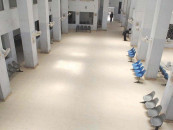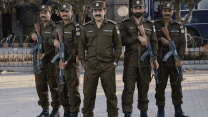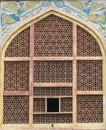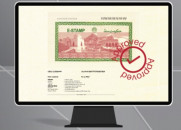Imran Khan from the heart
Imran has read Allama Iqbal, Ali Shariati, but he is more like Syed Qutb, too reactive, a politician of extremes.

The formative matrix is Zaman Park where he grew up. His maternal grandfather Ahmad Hasan Khan continues to be emblematic of the place. A contemporary noted that in the early years of the 20th century that when he entered the Government College (GC) Lahore, Ahmad Hasan Khan, as a student of the GC, was talk of the town, captaining both cricket and soccer teams. He grew to become the most intellectually gifted of the Pathans of Jalundhar, serving as census commissioner of Punjab at the height of his career as a civil servant.
The sporting DNA came from him, father to three daughters who gave Pakistan three captains (Javed Burki, Majid Khan, Imran Khan) of the national cricket team. Of the three, Imran’s mother was the most educated. Under her tutelage Imran achieved excellence in both aspects of personality, sport and intellect. Typically, at Zaman Park, he was withdrawn and wild, conforming to the first law of the jungle, survival of the fittest.
Ahmad Hasan Khan’s son Ahmad Raza Khan went on to embody Zaman Park’s arcadian model: he played all sports with distinction and was a natural leader in civil service. Majid Khan’s father Dr Jehangir Khan combined in his genius a scholar-historian and a javelin-throwing wrestler who became an all-India cricketer.
Following the completion of his A-levels in 1972 from Aitchison College Lahore, Imran went to Oxford (p.57). He already liked the defiance of Bhutto who had committed Pakistan to a thousand-year war with India at the UN. But Bhutto fell early enough because of his embedded flaw of a feudal mind (p.40).
Memory inclined him to abhor what he calls the brown sahibs of Pakistan whom he first saw in Lahore Gymkhana where “Pakistanis pretended to be English and danced to western music on a Saturday night” (p.43). Gora sahib British had embedded an inferiority complex amongst the natives with great care (p.45).
He loved cricketers who refused to kowtow: “Sir Vivian Richards from the West and Sunil Gavaskar of India were both examples of sportsmen who wanted to assert their equality on the cricket field against their former colonial masters” (p.64). British Raj had romanced the Pathan highlander even as he fought him, admiring his defiance.
As captain of the Pakistan team, Imran got on well with General Ziaul Haq although “his political use of Islam was aimed more at capturing the mood of the time” (p.69). He thought Islamisation was mere outward observance and remained untouched by it. (Later Captain Inzimamul Haq would preside over a crudely demonstrative religiosity that left the team empty of all ethic. Today, after Talibanisation, even Miandad says he used to do wuzu before going in to bat.)
Imran imbibed a strong sense of personal destiny. He recalls: “Pir Gi from Sahiwal said I would be very famous and make my mother a household name” (p.89). Imran had announced his first retirement when he met another clairvoyant: “Baba Chala, lived in a little village just a few miles from the Indian border. He certainly had not heard bout my retirement… the man looked at me and said I had not left my profession…. It is the will of Allah; you are still in the game” (p.93).
But the man who stood by him as his spiritual mentor was Mian Bashir (d.2005) who shocked him by naming the Quranic ayat his mother used to read to baby Imran and predicted that Allah had turned the tables in his favour in the Lamb-Botham libel suit whose reparations would have pauperised Imran (p.189). Mian Bashir also disarmed a sceptical Jemima by accurately guessing her three secret wishes (p.120).
Imran married Jemima in 1995 but the marriage was on the rocks soon enough. He is graceful in his expression of sincere regret at what happened: “The six months leading up to our divorce and the six months after, made up the hardest year of my life” (p.214). If the book is a personal narrative, Jemima probably deserved more space. She was of far greater personal worth than he realises although he is appropriately grateful that his two wonderful sons are growing up with her in England, away from the violent dystopia of Pakistan.
Jemima and Princess Diana were both good for Imran and his cancer hospital. His icons looked for the ‘autonomous woman’ in their dedicated lives. Allama Iqbal had his Atiya Fyzee and Jinnah his Ruttie. Inspirational, predestined Imran had his ‘rational’ Jemima?
He discusses his pre-marital “hedonism” and calls it “a mirage”: “The hurt I caused and the feeling of emptiness I experienced in transitory relationships far out-weighed the moments of pleasure” (p.91). He is aware of the ‘born again’ label and resists it, even recalling Fazal Mehmood, the playboy fast bowler of Pakistan, who went heavily religious after retirement from cricket. He is more firmly moored in Allama Iqbal and Jinnah who Sarojini Naidu thought (p.18) was “a little aloof and imperious of manner” — just like Imran Khan?
From his sense of predestination comes his risk-taking character. But he says: “The difference between a good leader and a bad one is that the former takes huge risks while fully grasping the consequences of failure. Leaders of a country shaping policies out of fear of losing power have always proves to be disastrous. Great leaders always have the ability to resist pressure and make policies according to their vision, rather than fear” (p.113).
A most falsifying aspect of leadership is its condition of being a public good. Imran has read his Allama Iqbal and Ali Shariati, but he may finally be more like Syed Qutb, too reactive, too much a politician of extremes.
Coda: The cover picture of Imran with a punk thatch may be too brown sahibish compared to the more impromptu and ‘true’ photographs inside the book.
Published in The Express Tribune, October 2nd, 2011.



















COMMENTS
Comments are moderated and generally will be posted if they are on-topic and not abusive.
For more information, please see our Comments FAQ